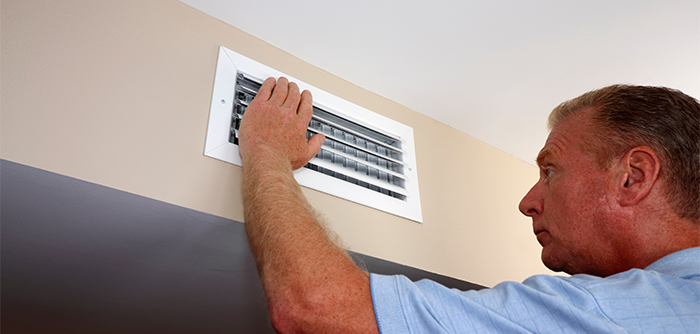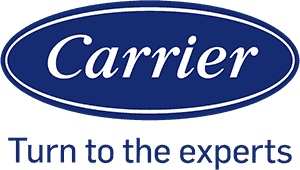HVAC Efficiency: DIY vs. Professional Care
Maintaining your HVAC system is essential for ensuring it runs efficiently and lasts longer, saving you money on energy bills and costly repairs. While some maintenance tasks, like cleaning air filters and ensuring proper airflow around your unit, can be easily handled at home, others require the expertise of a professional. This balance between DIY HVAC routine maintenance and expert intervention is crucial for keeping your system in top shape. In this guide, we’ll explore 10 HVAC maintenance tips you can do at home to enhance your system’s efficiency and highlight when it’s time to call in the pros. Whether you’re looking to perform preventive maintenance on your AC unit, understand more about the maintenance of HVAC systems, or learn how to service your HVAC effectively, you’re in the right place.
10 Essential HVAC Maintenance Steps for Homeowners
Discover 10 essential HVAC maintenance tips to keep your system running smoothly and efficiently from home. Learn when to tackle tasks yourself and when to call in the professionals for optimal performance and longevity.
Step 1: Inspect and Replace Your Air Filters Regularly
A clean air filter is essential for maintaining the efficiency of your HVAC system. Check your air filters monthly and replace them at least every 90 days, or more often if you have pets or allergies, to ensure optimal airflow and system performance.
Step 2: Keep Your HVAC Unit Free of Debris
Ensuring your outdoor HVAC unit is free from debris enhances airflow and system efficiency. Regularly remove leaves, dirt, and other obstructions from around the unit to prevent potential issues and maintain optimal functionality.
Step 3: Check Your Thermostat Settings
Optimizing your thermostat settings can significantly enhance both comfort and energy efficiency. During warmer months, setting your thermostat to a higher temperature when you’re away and cooling only when you’re home can save energy. In cooler months, the opposite applies. Consider a programmable thermostat to automate these settings for optimal efficiency.
Step 4: Ensure Proper Insulation and Sealant for Ducts
Proper insulation and sealing of your HVAC ductwork are crucial to prevent energy loss. Periodically inspect your ducts for any signs of leaks or damage and address them promptly. Using mastic sealant or aluminum foil tape can effectively seal leaks, and adding insulation around ducts in unconditioned spaces can further improve your system’s efficiency.
Step 5: Clean Indoor Vents and Registers
Keeping indoor vents and registers clear of dust and obstructions is key to maintaining efficient airflow throughout your home. Regularly vacuum the vents to remove dust accumulation and ensure furniture or drapes do not block the airflow. This simple step can significantly improve your HVAC system’s efficiency and indoor air quality.
Step 6: Maintain a Clear Drain Line
The HVAC condensate drain line plays a crucial role in removing condensation produced by your air conditioner. Ensure this line is clear to prevent water damage and mold growth within your system. Annually, flush the line with a cup of chlorine bleach followed by water to keep it clear, and check it periodically for clogs or obstructions.
Step 7: Monitor System Start and Stop Cycles
Regular monitoring of your HVAC system’s start and stop cycles is essential. An HVAC system that cycles too frequently or irregularly can indicate underlying issues, such as improper sizing or a malfunction. If you notice unusual cycling patterns, it may be time to consult the professionals at Gulf Coast AC to diagnose and resolve the issue, ensuring your system operates efficiently and effectively.
Step 8: Test Safety Controls and System Start-Up
Testing your HVAC system’s safety controls and ensuring smooth start-up processes are crucial for safe and efficient operation. Annually, or as specified by your system’s manufacturer, check that all safety features are operational and that the system starts and stops correctly. If you encounter any issues during these tests, contacting a professional HVAC technician at Gulf Coast AC for a thorough inspection and repair is advisable.
Step 9: Listen for Unusual Noises
Stay alert to any unusual noises coming from your HVAC system, such as rattling, buzzing, or whistling sounds. These noises can indicate a variety of issues, from loose parts to airflow obstructions. Addressing these sounds promptly can prevent minor problems from escalating into major repairs.
Step 10: Review Energy Bills for Sudden Changes
Keep an eye on your energy bills for unexpected increases, which can signal inefficiencies in your HVAC system. A sudden spike in energy usage without a corresponding change in home heating or cooling habits warrants a system checkup to identify and rectify any issues affecting its efficiency.
The Importance of Professional HVAC Maintenance
While the DIY maintenance steps outlined above are essential for keeping your HVAC system running smoothly, there are certain aspects of HVAC care that require the expertise of a professional. Professional HVAC maintenance goes beyond the basic upkeep tasks you can perform at home, addressing complex issues and ensuring your system operates at peak efficiency. Regular professional checkups can diagnose and fix potential problems before they lead to significant damage or system failure, ultimately saving you money and extending the lifespan of your unit. Enlisting the help of a certified HVAC technician for routine maintenance is a smart investment in the health and efficiency of your home’s heating and cooling system.
Gulf Coast Air Conditioning Maintenance Plans
Gulf Coast Air Conditioning offers two main maintenance plans to ensure your HVAC system remains efficient and performs at its best. The Platinum Semi-Annual Service Agreement includes twice-a-year system check-ups, major system inspections, drain cleaning, and discounts on repairs, duct cleaning, and system replacements. The Gold Plan Annual Service Agreement provides a comprehensive yearly system check-up with similar benefits. Both plans prioritize keeping your HVAC in peak condition, offering savings on potential repairs and operating costs, with the added convenience of priority service and significant discounts on additional services and replacements.
For more detailed information, please visit Gulf Coast Air Conditioning’s maintenance plans page.
Final Thoughts
Maintaining your HVAC system through both DIY efforts and professional services is crucial for ensuring its efficiency, longevity, and performance. By following the 10 essential maintenance tips provided, homeowners can actively contribute to their system’s health and prevent many common issues. However, the expertise and thoroughness of professional maintenance, as offered through Gulf Coast Air Conditioning’s maintenance plans, are invaluable for identifying and addressing more complex problems. Together, these strategies form a comprehensive approach to HVAC care, promising comfort and cost savings year-round.
For the best in HVAC maintenance and care, explore our Maintenance Plans, designed to fit your specific needs and enhance your system’s performance.

